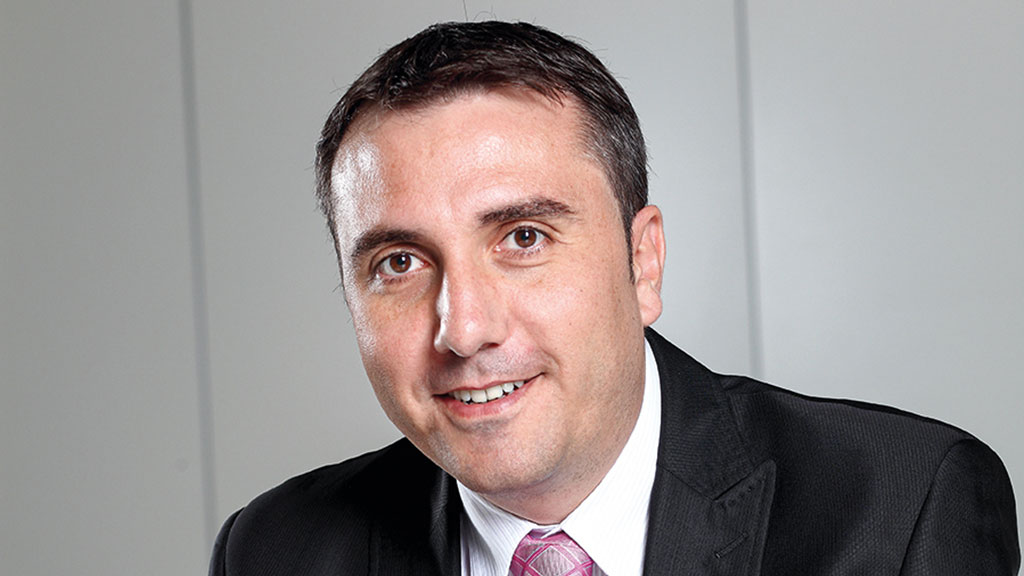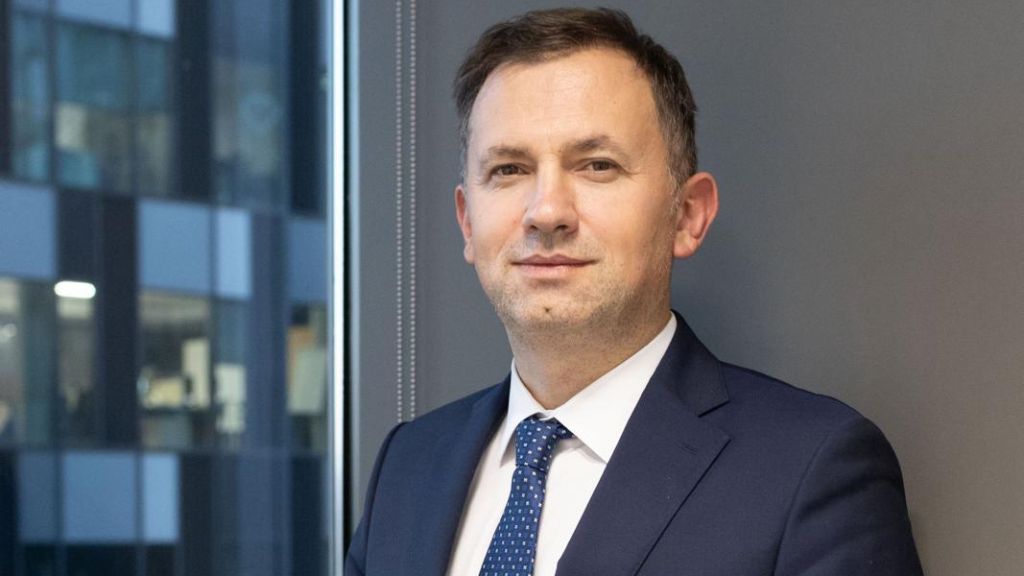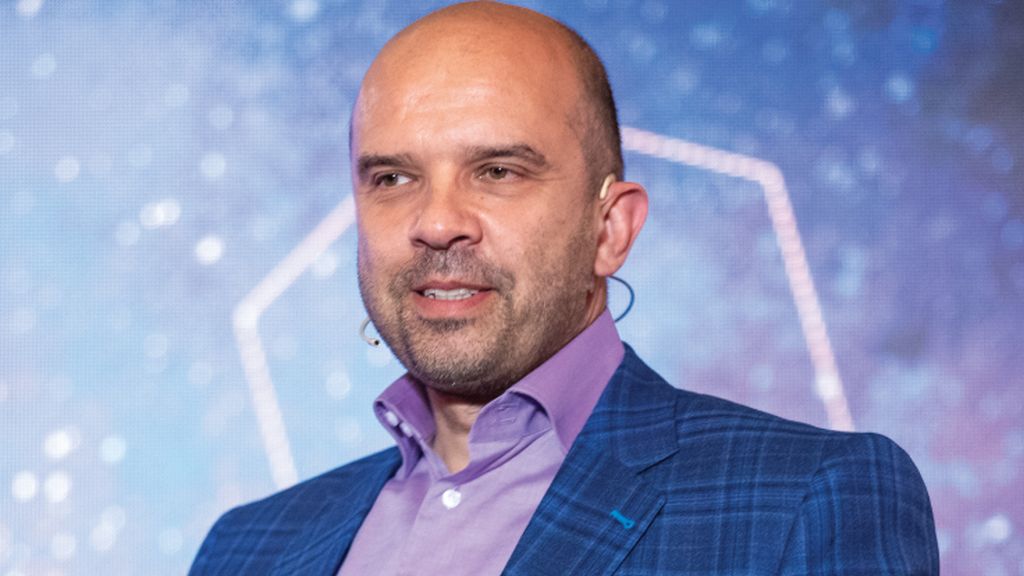Q: How would you define the “big role” of the banking industry in being an enabler for a positive change in society in the context of the Industrial Revolution 4.0 (IR 4.0)?
Ufuk Tandoğan: Two years ago, Klaus Schwab, the Executive Chairman of the World Economic Forum, said that the fourth industrial revolution is “unlike anything human kind has experienced before” in terms of its “scale, scope, and complexity”. And he could not have been more right. This is a Revolution cemented in technology, Big Data, and artificial intelligence. Its impact is also felt in the banking industry.
The need for information, for efficiency, for Internet and mobile banking, as well as for state of the art technology, have defined the way we conduct our business and how we approach clients, while shaping the way we ourselves grow, year after year. Digitalization of banking services is gaining ground. At the same time, the IT and data security became more and more a priority. The banking industry is leading the way in finding solutions to tackle this. We do it by training our clients and our employees in cybersecurity prevention. Apart from financial education, there is also a need for complex digital education.
Q: How will the IR 4.0 materially change the entire value chain of how banking services are produced today in terms of the price and form?
Ufuk Tandoğan: We believe that harnessing the power of the Internet and mobility will continue to be the main trend in our industry. The future of banking is digital. For the short term, the strategic focus will be on developing and upgrading the mobile banking applications and online banking services.
We must be aware of the fact that the financial ecosystem is growing. With the rise of fintech companies and tech giants, banks must rely even more on innovation, to offer more personalized banking experiences to their clients and to be integrated in the day-to-day activities of the consumer. All at a competitive cost.
Q: Romania has grown a lot in terms of the development of banking, but there is still room ahead. How far are we from the potential and how will IR 4.0 help reaching the potential?
Ufuk Tandoğan: Romania is among the countries with the fastest fixed broadband Internet speed and has a growing number of Internet users. At the end of 2017, there were over 20 million mobile internet connections and more than 4.8 million of fixed internet connections, according to ANCOM.
Although, according to statistics, only 6 out of 10 Romanians have a banking account and only 7% of the population, with ages between 16 and 74, uses internet banking, there has been a significant progress in the past 20 years.
The Romanian banking industry’s bet on digital is the right one, even more because we have room for growth. Moreover, the digitization will help us not only to reach to new potential clients, but also to create products tailored to our customers’ needs.
Q: How do you capitalize on trends derived from the Industrial Revolution 4.0? What are the implications on customers?
Ufuk Tandoğan: Historically, technical evolution has proved to be a major factor in diversifying the pool of products provided by all players in the market. The types of financial products and services have multiplied considerably in the past years, as customers’ needs for efficiency and excellence have amplified at very high speed. We no longer work solely with loans, deposits, and promissory notes, as it may have been the case 50-60 years ago. Digital banking products gain more and more ground, as online shopping and digital instruments have become a reality in the recent past, and customers have shown an increasing preference in this direction.
Thereby, given the strong and direct relation between banks’ product portfolios and clients’ new behaviors, I would not necessarily say that we have learned to capitalize on the trends derived from IR 4.0. A more accurate argumentation would be that we have adapted to technology driven changes, which have proven to be imminent.
Consequently, we update all our digital products, in order to best fit the change brought by the clients’ complex requests and expectations. As such, we have recently relaunched our Internet Banking platform, Garanti Online, in an upgraded, more user-friendly format. The new platform offers an intuitive interface, an easier to use menu, and simplifies the steps a user must follow in order to perform operations. All menus now have a uniform, optimized design, while bringing forward the more modern, digital-oriented spirit of banking.
Q: Big data is another fantastic tool for the banking industry, as it’s becoming essential for analyzing and coming up with a scoring methodology to determine where the liability resides. Do the Romanian banks have enough big data?
Ufuk Tandoğan: Romanian banks make use of Big Data to the extent that customer behaviors generate a certain amount of Big Data. The more complex a financial client behavior (showing a predisposition to a diversity of banking products and services), the more detailed the data is and the better banks’ offers become.
The use of Big Data helps banks to better anticipate their customers’ financial behavior and future needs. This ultimately perfects customer experiences, as learning what is relevant to a specific customer, allows banks to offer tailored products and services. Thus, making modern banking a highly individualized experience.
Customization helps banks become a long-lasting partner. Being always close to clients and giving them exactly what they need, when they need it, banks aim to become part of clients’ everyday lives.
However, the usage of Big Data must comply with the General Data Protection Regulation – GDPR, which overhauls the way organizations handle personal data. In Romania, the Regulation has started being implemented since May. I would like to add that Garanti Bank, as our clients already know, is a trustworthy bank that values the privacy of its’ clients and handles all personal data with great responsability.
Q: Are you confident that there will be a day when some decisions will be made by artificial intelligence instead of human employees? What are the reasons for being confident or not being confident on this?
Ufuk Tandoğan: It is undeniable that the rise of digital banking, together with people’s need for efficiency, have led clients to becoming more independent, when conducting banking transactions, especially basic ones. At the same time, banking is an industry conducted by people, for people. The physical branch and human connection will continue to exist, as customers still rely on specialized counseling, before making important financial decisions. This type of behavior is not likely to change. If anything, I believe that digital transformation will be used more and more by banks, in order to increase their efficiency for their branches, while their employees will continue to provide consulting services but for more complex products, rather than transactions.
Although the past years have been marked by incredible progress and innovation, it is highly unlikely that robots, even those powered by deep learning and artificial intelligence, will replace bank employees anytime soon. For the time being, it seems unlikely that consumers would be comfortable interacting with a robot, even with one that can mimic a human. People come to a bank’s branch for a face-to-face experience with a person, in order to have financial information explained to them, so they can take informed decisions.
Q: What does it mean for the industry to shift some responsibility from employees to artificial intelligence since the digital universe comes with additional risks like cyber, hacking, system failures and so on?
Ufuk Tandoğan: Enhancing cyber and data security is the number one priority, according to Ernst&Young. Therefore, the banking industry is well aware that in this ever-more-connected environment cybersecurity is paramount.
Cyber prevention is key. Banks must educate their clients on how to safely use digital services, in order to make their life easier, while maintaining their security. We believe that employees must develop the proper skills and expertise in order to tackle this. Therefore, investments in training the staff are very important.
Q: Advance made in medical technology will have implications on longevity. What implications does that have in terms of how we finance our lives through banking?
Ufuk Tandoğan: Both quantity and quality of our clients’ lives play an important role in how the financial world functions. Nevertheless, in this moment, it is too early to predict any fundamental changes in how banking works.
Q: What’s Garanti Bank’s biggest achievement in 2017, what is the banking industry’s biggest achievement in Romania in 2017 and what is your perspective for this year?
Ufuk Tandoğan: 2017 has been the best performing year in Garanti Bank’s history in Romania. Last year, we succeeded in growing our asset volume by over 11%, exceeding the Romanian banking market average. Moreover, the bank registered a RON 109.7 million net profit and revenues of RON 504.3 million. The NPL ratio has continuously decreased, being considerably below the market average, while the NPL coverage rate by provisions is above 50%. Both capital and liquidity ratios further improved, showing a strong capitalization and a sound liquidity position, while having a low cost of risk reflecting the long-term sustainability of the bank’s business model.
We have a long-term commitment in Romania. Currently, we are a bank of systemic importance, the tenth in the local system, position that we have organically grown and consolidated in the past 20 years. Moreover, earlier this year, Garanti Bank has been declared Superbrand, distinguishing itself from a list of over 1,500 brands analyzed by Superbrands Romania. All this confirms that our efforts and work have paid off. And, we will certainly not stop here.
Our objectives further on will continue to focus on maintaining a healthy portfolio, being a trustworthy financial partner to all clients, across all business lines (Retail, SME and Corporate), and increasing profitability in a sustainable manner.
Q: Who should fear about the current trend of rising interest rates, inflation while the growth in the economy is still robust, and why?
Ufuk Tandoğan: Fear is not an issue, in my opinion, and Romanians always finds a way to pull through even in hard times. For example, when we established our presence here in Romania, in 1998, the inflation was a two-digit indicator. Of course, it might be currently on the rise, but its evolution is merely marginal, compared to the 90s. Garanti Bank believes in Romania’s growth potential. This is why we have a long-term commitment to the local business environment and to our clients.






























